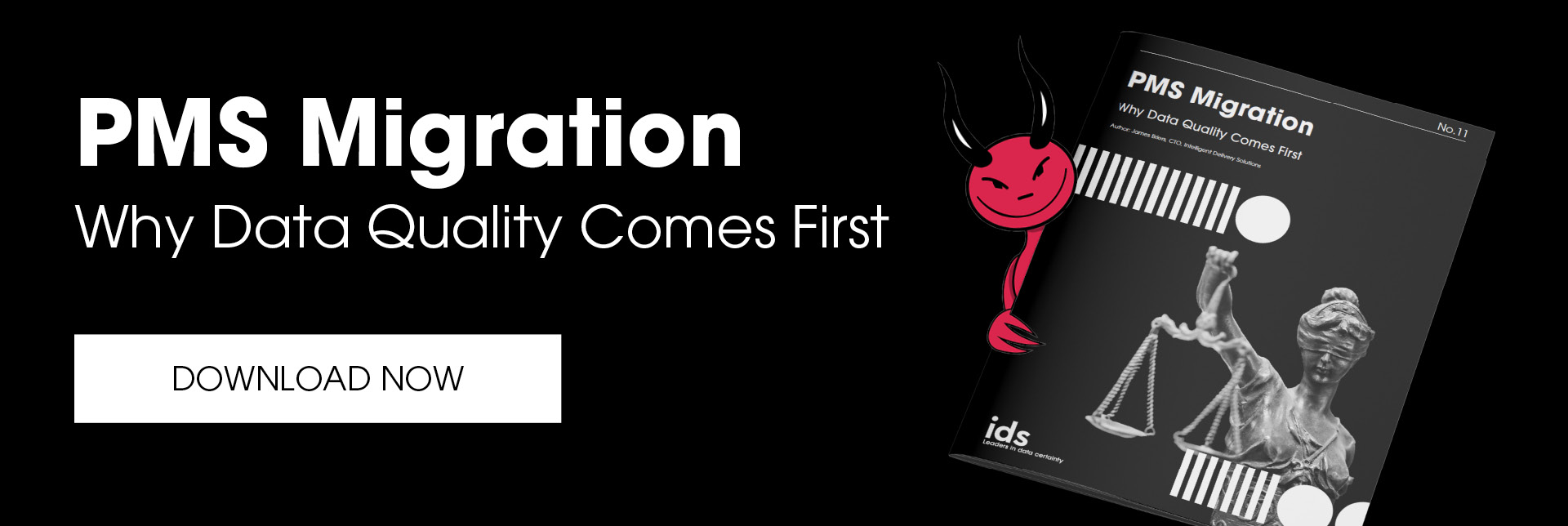The Importance of Data Compliance in 2022
.jpg)
In the legal services sector, the governance of information is essential to practices. For companies dealing with sensitive client and employee data, compliance techniques and guidelines are paramount. Adherence to regulations like GDPR, HIPAA, and FERPA are vital to running a successful practice.
Simply put, if compliance is ignored, this could result in unintended data breaches, found to cost firms not only their reputation, but almost $4 million per year on average.
This article will explain how best to handle sensitive data to protect law firms, using the most compliant techniques during non-production testing, data migration and management.
The difference between compliance and security is often confused, this article will describe what data compliance means in the context of sensitive data. As well as what this all means for law firms in 2022.
What is Data Compliance?
Data compliance is the process of following guidelines and ensuring regulations are in place that dictate how your firm manages digital assets.
Assets commonly surround personally identifiable information (PII). This is any information that can be used to directly identify an individual, such as their name, phone number, email address or other contact details. It can equally constitute an individual’s physical characteristics or online activity that can also identify them.
Therefore, best practices in data compliance should be enforced across any third party that has access to PII, such as employees, contractors, or vendors.
Why is Data Compliance so Important?
Risk to Your Business
In modern law firms, data protection and compliance policies and procedures should be the subject of regular reviews, to ensure that appropriate data security measures are in place.
In the event of a data breach, during a merger or acquisition or a business-critical PMS migration, law firms are subject to fines from public and regulatory authorities.
These fines can be imposed on the firm and their partners for up to 10 years. The fine itself is calculated based on the number of people that were affected by the data breach, the amount of money lost, and the level of negligence. Consequently, risking law firms’ profitability and targets.
Positive Image
Compliance issues can cost any business money, however the reputational damage of a data breach can be catastrophic, and it can be terminal. A firm’s unprofessional handling of sensitive data are often newsworthy and played out very publicly.
The irreversible mistrust against the practice, makes it challenging to recover a positive brand image, inevitably driving away business' customer retention levels.
Customer Retention
Compliance is not just about following rules; it’s about building a practice that clients can trust. People are now more aware than ever of the sovereignty of their information. Their expectations of companies doing business effectively are high.
Prioritizing data compliance can drive customer loyalty because it inspires trust. Firms who may be less concerned about their customers' compliance needs will lose out.
Data Compliance vs. Data Security
Data privacy is not, by definition, synonymous with data compliance. Data security is focused on the way firms manage and interact with their data to ensure it’s not lost or compromized.
Data compliance involves managing data through workflow-driven techniques in line with legal standards, data security is the other side of the coin.
Data security involves firms protecting sensitive PII data from breaches in line with data privacy laws. These laws, including the International Organization for Standardization (ISO), can be met at either regional, national or global levels to avoid the risk of punitive fines.
Data Compliance Techniques
Privacy by Design
Whether it’s the acquisition of another firm’s data or migrating to a new PMS platform, accomplishing data compliance and security starts with firms designing a data governance framework.
By accepting strict responsibility for handling data securely, law firms can build teams accountable for data compliance, ensuring they are, by design, focused on achieving privacy.
Once their data focus is built into their design statements, leaders are then ready to create a dedicated, compliance-minded team, accustomed to handling information with care and efficiency.
Staff Training
Staff members are the first line of defense in any firm in protecting sensitive information. They are responsible for maintaining a secure environment for the company, following guidelines and procedures, and keeping up with any changes to regulations.
The best way to prevent a breach is through education as part of the data governance program.
Staff members need to know what they're protecting as well as how they can protect it.
Prepare for Audits
The number of law firms audited since 2017 has increased by 20%.
To be prepared for sudden audits, it’s imperative to establish data compliance procedures and privacy solutions ahead of the event.
In the instance that the results of an audit expose the firm, if no automated solutions are in place, the disruption to make the necessary fixes will subsequently divert effort from business-critical tasks.
Compliance Automation
Data compliance and security are on the minds of every firm, but it is impossible for lawyers to always have them in mind.
Compliance automation relieves stress and human error in communications by ensuring that the firm is compliant with regulations. Additionally, compliance automation ensures firms can communicate with their clients securely without worries of being hacked or having data leaks.
There are several tools that firms have available to automate processes and keep data secure. Tools, like iData, allow for data quality assurance and data compliance, with others automating backups, encrypting emails, managing passwords etc.
Conclusion/Summary
It’s vital for law firms to have a robust compliance program and data governance strategy in place to ensure they’re not at risk of fines or a damaged reputation. Otherwise, practices are potentially in danger of losing clients and profits.
Conducting risk assessments, health checks and creating a plan for how the practice will protect their data, and reduce their risks of obstinance, is just one of many services IDS support law firms with.
Data certainty experts will work with your firm to provide ongoing support and strategic guidance to remaining compliant before an audit, testing process or PMS migration.
Arrange a free consultation here to test the efficacy of your data quality, compliance, and security to assure your firm’s sustained success in 2022.

How IDS Accelerated Data Quality for a Legal Firm Merger
In one of the toughest migration projects, IDS, delivered a seamless migration and quality assurance process by adhering to governance requirements using the Kovenant™ methodology..



.jpg?width=1200&name=IDS_Website-Image39_(1200x628).jpg)
.jpg?width=1200&name=IDS_Website-Image38_(1200x628).jpg)

